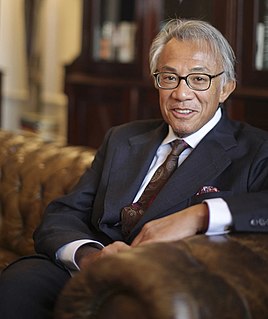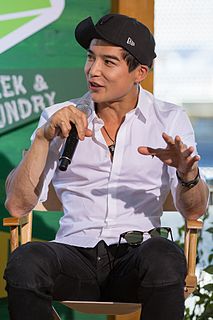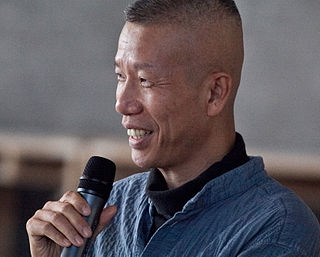A Quote by James Wan
Language-wise, my mom and dad's dialect, they're pretty obscure. It's Chinese, but not your traditional Chinese, like Cantonese or Mandarin. It wasn't something that I got to use very much growing up. We eventually just spoke English around the house.
Related Quotes
Until the age of five, my parents spoke to me in Chinese or a combination of Chinese and English, but they didn't force me to speak Mandarin. In retrospect, this was sad, because they believed that my chance of doing well in America hinged on my fluency in English. Later, as an adult, I wanted to learn Chinese.
I grew up bilingual, I grew up speaking Chinese in the home, Mandarin Chinese with my parents, and I learned English because I was born and raised in the U.S. That really gave me an edge. I understand that, from the experts, if you grew up bilingual, your brain kind of gets wired to accept a new language. It was a very serious deal because not only did I have to learn Russian to a high degree in order to function as a necessary member of the crew, but also I knew that the Russians that came over that made an effort and had some success in learning English, those were the folks we trusted.
My parents are European immigrants. And I think as Europeans there are so many languages in close proximity that it's part of the culture to try to learn at least one other language. So my parents really encourage it in the house. Chinese would be really great to learn - like Mandarin or Cantonese. Portuguese would be incredible.
You may be right in believing that if you study hard, one day you might become fluent in English. But you will still look Chinese, and when people meet you, they’ll see a Chinese girl no matter how well you speak English. You’ll always be expected to know Chinese, and if you don’t, I’m afraid they will not respect you as much.
There are photographers who push for war because they make stories. They search for a Chinese who has a more Chinese are than the others and they end up finding one. They have him take a typically Chinese pose and surround him with chinoiseries. What have they captured on their film? A Chinese? Definitely not: the idea of the Chinese.



































